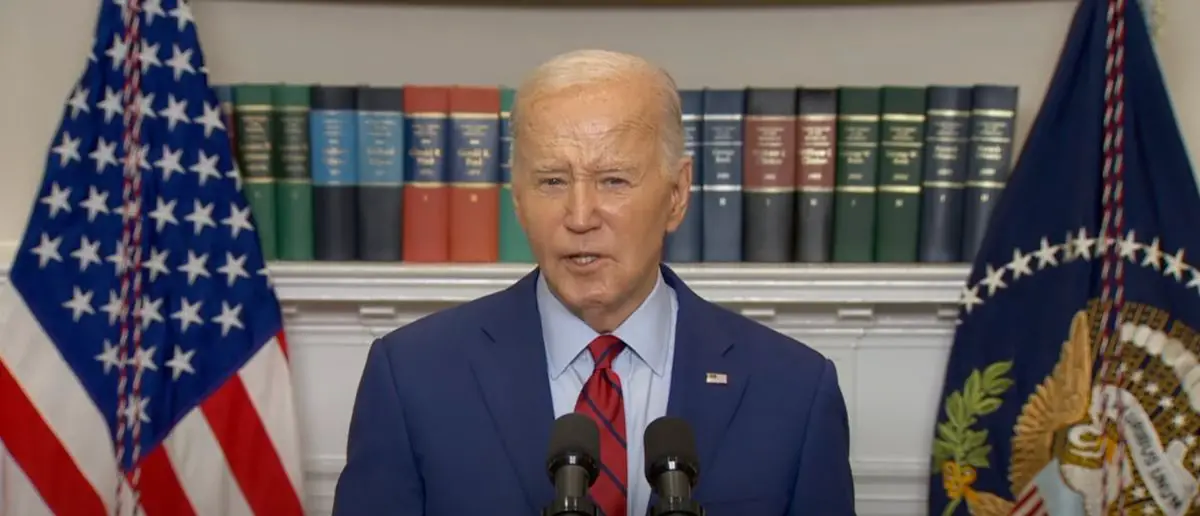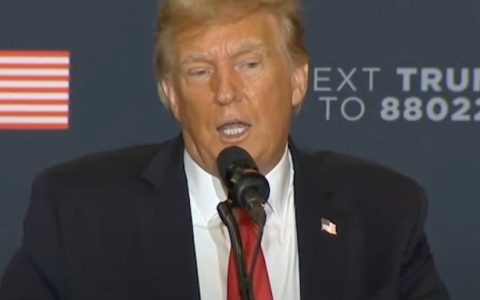
American national security is at risk. All because of one decision from President Biden.
And now Joe Biden’s in a panic after realizing the huge national security mistake he’s made.
Over the past several years, Joe Biden and company have been trying to “strengthen” U.S. relations with the Communist regime of China, headed by the Chinese President Xi Jinping. Though there are new concerns that this is a huge mistake as new U.S. intel suggests that China is more self-interested than Joe Biden and the Democrats are letting on.
In a recent Senate hearing, Director of National Intelligence Avril Haines delivered a sobering outlook on the evolving landscape of global security, highlighting the increasing volatility in relations between China and the United States. Against the backdrop of escalating tensions, Haines underscored China’s strategic maneuvering, projecting continued assertive actions by Chinese military forces in the Asia Pacific region.
Notably, Haines sounded the alarm on China’s backing of Russia’s defense base, a move that she suggested was tilting the scales in Moscow’s favor in the ongoing conflict in Ukraine. Moreover, she revealed unsettling intelligence regarding the deployment of malicious software by both China and Russia within critical U.S. infrastructure, indicative of a broader strategy aimed at potential future sabotage.
The testimony, part of the Senate Armed Services Committee’s annual threat briefing, shed light on a multifaceted security landscape, as Senator Roger Wicker emphasized the proliferation of armed conflicts, regional instability, and the expanding threat of violent extremism. Against this backdrop, the decisions made by policymakers were framed as having far-reaching implications for national security.
“Armed conflict is raging in multiple theaters. Regional instability is on the rise. Violent Islamic terrorism is expanding. Several of our principal adversaries are deepening their cooperation, forming a new axis of evil and striving to reshape the geopolitical order,” Senator Wicker from Mississippi shared. “The decisions we make this year will have far-reaching implications for our national security.”
Accompanying Haines, Air Force Lt. Gen. Jeffrey Kruse of the Defense Intelligence Agency voiced concerns over the growing collaboration among adversarial powers, citing China, Russia, and Iran as key actors forging unprecedented partnerships. This convergence, he argued, transcends historical friction points, presenting new challenges for U.S. defense planners.
Haines offered insights into Chinese leadership’s perceptions of the United States, highlighting a belief that Washington is committed to containing China’s rise and undermining the Communist Party’s rule. However, she noted that Beijing’s immediate priority lies in stabilizing its faltering economy, suggesting a cautious approach to bilateral relations.
Despite the Biden administration’s pursuit of closer ties with China, concerns persist over Beijing’s aggressive actions, including military coercion in the region, support for Russia in Ukraine, and global cyberattacks. The economic ramifications of this geopolitical maneuvering were also examined, with Haines pointing to China’s escalating retaliatory measures in response to U.S. national security restrictions.
Furthermore, China’s strategic ambitions were laid bare, with Haines asserting Beijing’s intent to challenge U.S. dominance and assert itself as a global superpower. This includes ongoing efforts to intimidate neighboring states, notably Taiwan, as part of broader geopolitical objectives.
The Pentagon’s recalibration of military planning in light of increasing Chinese-Russian cooperation, particularly concerning Taiwan, was underscored by Gen. Kruse. While acknowledging limited interoperability between Russian and Chinese forces, he emphasized the imperative of adapting force structures to account for enhanced cooperation.
In tandem with military advancements, Haines highlighted China’s deepening ties with Russia, particularly in bolstering Moscow’s military capabilities in Ukraine. This collaboration, she argued, has shifted the momentum in favor of Russian forces while facilitating the reconstitution of their military strength.
“Even if Russia and China as a military force are not interoperable, they would certainly be cooperative. And we would need to take that into account in force structure and planning,” Kruse noted.
The imposition of sanctions on Chinese entities by the State Department further underscores U.S. efforts to disrupt this partnership and curb China’s support for Russia’s military endeavors. Nevertheless, the persistent aggression exhibited by Russian forces in Ukraine underscores the protracted nature of the conflict, with no immediate end in sight.
Turning to the Israel-Hamas conflict, Haines outlined the regional reverberations of the ongoing hostilities, including heightened tensions between Israel and Iran and increased attacks by Iranian proxies. Amidst this volatile landscape, the specter of terrorist groups like al Qaeda and ISIS, emboldened by Hamas’ actions, poses additional security challenges for the United States and its allies.
Cybersecurity emerged as a central concern, with Haines highlighting the exponential rise in ransomware attacks globally and the vulnerability of critical infrastructure to cyber threats. The growing sophistication of cyber adversaries, coupled with their capacity to infiltrate industrial control systems, underscores the urgent need for enhanced cybersecurity measures.
Notably, Haines addressed the prospect of foreign interference in the form of cyberattacks on critical infrastructure, with both China and Russia identified as potential perpetrators. While acknowledging the absence of attacks in peacetime, she underscored the strategic positioning of these adversaries to exploit vulnerabilities during times of crisis.
Senator Angus King echoed these concerns, characterizing the current landscape as an “invisible war on cyber,” marked by ransomware attacks and incursions into critical infrastructure. The potential for cyber “sleeper cells” within infrastructure systems further complicates efforts to mitigate cyber threats effectively.
Haines reaffirmed the U.S. intelligence community’s commitment to addressing emerging threats, including anomalous health incidents affecting U.S. personnel abroad. Despite ongoing investigations, the attribution of these incidents to foreign actors remains inconclusive, underscoring the complex and evolving nature of modern security challenges. As the geopolitical landscape continues to evolve, vigilance and strategic foresight will be paramount in safeguarding national interests and countering emerging threats.
Stay tuned to the DC Daily Journal.





